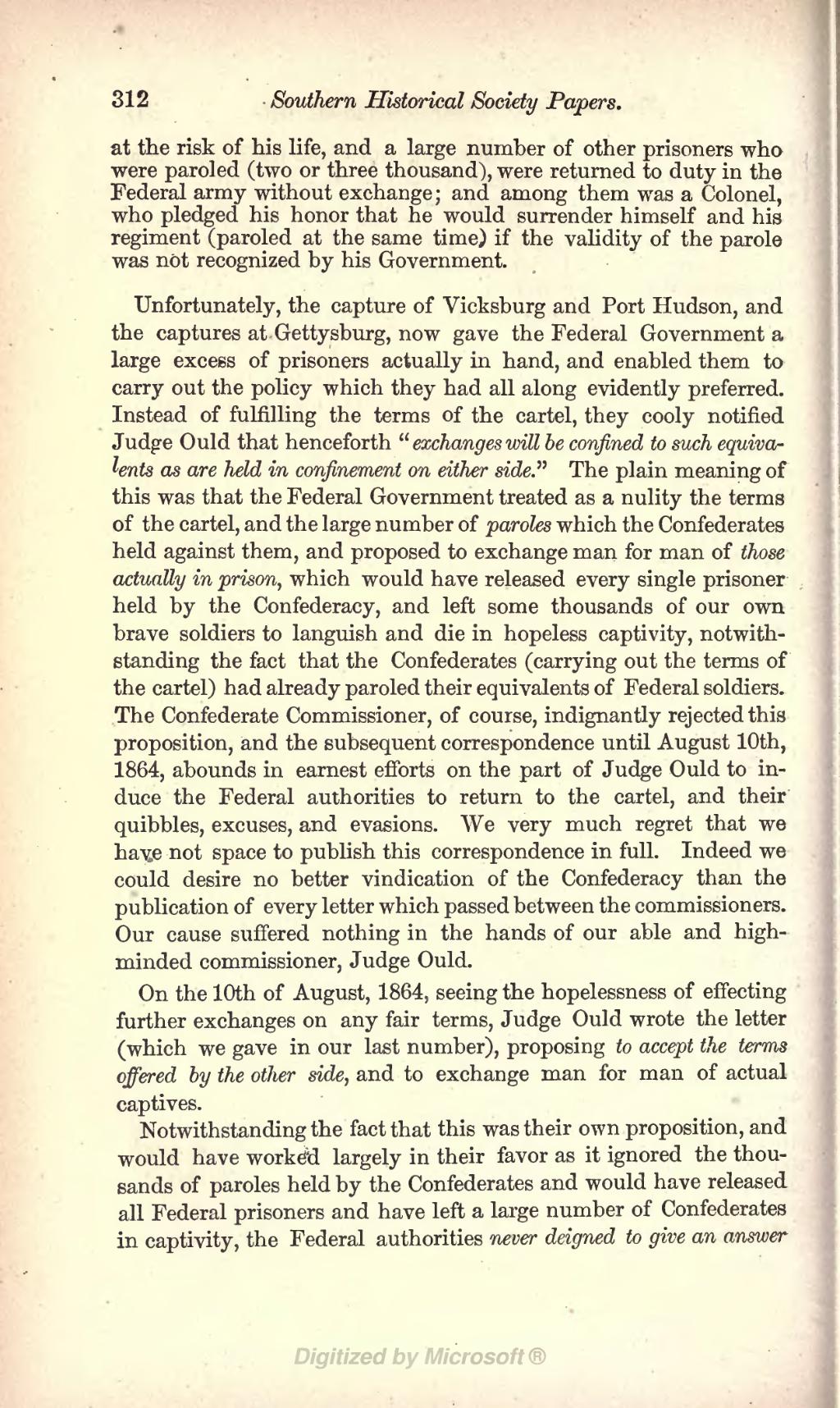at the risk of his life, and a large number of other prisoners who were paroled (two or three thousand), were returned to duty in the Federal army without exchange; and among them was a Colonel, who pledged his honor that he would surrender himself and his regiment (paroled at the same time) if the validity of the parole was not recognized by his Government.
Unfortunately, the capture of Vicksburg and Port Hudson, and the captures at Gettysburg, now gave the Federal Government a large excess of prisoners actually in hand, and enabled them to carry out the policy which they had all along evidently preferred. Instead of fulfilling the terms of the cartel, they cooly notified Judge Ould that henceforth "exchanges will be confined to such equivalents as are held in confinement on either side" The plain meaning of this was that the Federal Government treated as a nulity the terms of the cartel, and the large number of paroles which the Confederates held against them, and proposed to exchange man for man of those actually in prison, which would have released every single prisoner held by the Confederacy, and left some thousands of our own brave soldiers to languish and die in hopeless captivity, notwithstanding the fact that the Confederates (carrying out the terms of the cartel) had already paroled their equivalents of Federal soldiers. The Confederate Commissioner, of course, indignantly rejected this proposition, and the subsequent correspondence until August 10th, 1864, abounds in earnest efforts on the part of Judge Ould to induce the Federal authorities to return to the cartel, and their quibbles, excuses, and evasions. We very much regret that we have not space to publish this correspondence in full. Indeed we could desire no better vindication of the Confederacy than the publication of every letter which passed between the commissioners. Our cause suffered nothing in the hands of our able and high-minded commissioner, Judge Ould.
On the 10th of August, 1864, seeing the hopelessness of effecting further exchanges on any fair terms, Judge Ould wrote the letter (which we gave in our last number), proposing to accept the terms offered by the other side, and to exchange man for man of actual captives.
Notwithstanding the fact that this was their own proposition, and would have worked largely in their favor as it ignored the thousands of paroles held by the Confederates and would have released all Federal prisoners and have left a large number of Confederates in captivity, the Federal authorities never deigned to give an answer
